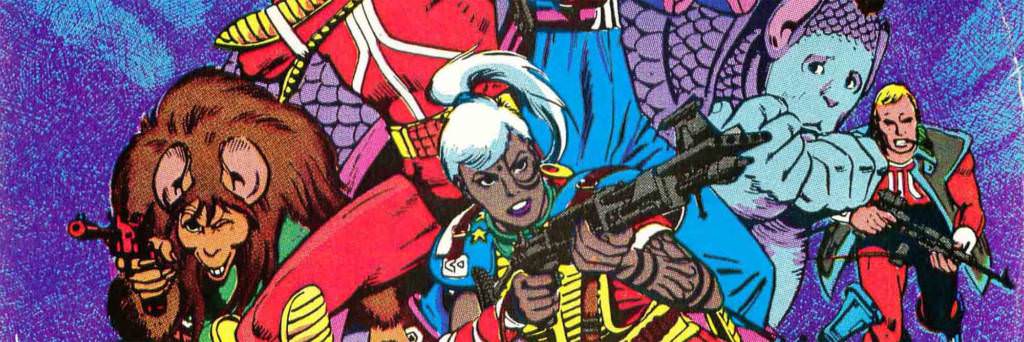Video game publishers have had a friend in the comic book industry for over three decades. From Atari Force to Tomb Raider, that bond continues today by providing fans with deep back stories, promotional tie-ins and even tales based on player experiences.
Video game-themed comic books are more than simple promotional tools. In fact, fans often love a franchise so much that they ask for more ways to enjoy it.
Sega and Amplitude Studios, for example, just released the fourth and final issue in a series of digital comic books called Endless Space 2 Stories. Each issue gives insight into the factions of the Endless Space game universe, as penned by the game’s writers Jeff Spock and Steven Gaskell. Amplitude’s Olivier Moreno provides artwork alongside other comic artists including Max Raynor (Judge Dredd), Denis Medri (Red Hood) and Yoon Seong Park.
“We often get requests for some more material to dive into the Endless Universe outside of the games—something to keep immersing oneself into the lives of heroes and villains, as a hero holding a standard or a fly on the wall,” Amplitude senior community director François Hardy wrote on the Endless Space 2 Steam page. “So, we listened and thought real hard about vignettes that could capture the spirit of each civilization in Endless Space 2. Comics seemed a great material to convey an atmosphere.”
Video games often fail to translate to other mediums—especially film—because each player creates his/her own memories within a franchise. This is particularly true for Eve Online, a massively multiplayer online role-playing game (MMORPG) that features 7,800 star systems to explore.
Player stories within the Eve Online universe became such an integral part of the community and game’s lore that developer CCP decided to chronicle them.
“We crowdsourced a number of stories from our players and published a comic book in partnership with Dark Horse Comics (EVE: True Stories) based on them,” Torfi Frans Olafsson, senior director of business development for North America at CCP told AlistDaily, who noted that the process was definitely a challenge.
“I remember when we were doing the comic book with Dark Horse, I was trying to think of an example of where this had been done before to act as a template. I couldn’t find one. There’s no playbook for taking a narrative that’s been shaped by so many people and crafting it into something. At times, we thought we could do it with big data analysis and tracking people like were the NSA or something. But in the end, it just comes down to good storytelling and journalism.”
Sometimes, a character or video game world is bigger than what a player can experience in one playthrough. Expanding on a game’s lore is another way game developers tell stories and enrich gameplay experiences with this additional knowledge. Franchises like Resident Evil, Street Fighter, Tekken, Halo, Gears of War, The Last of Us, Darksiders, Silent Hill, World of Tanks and more have used comics to share back stories, crossovers and bonus content with the players.
Back in 1982, home video game consoles were a new market—so to appeal to young audiences, Atari teamed up with DC Comics and added a little extra. Enter Atari Force, a series of mini comics packaged with game cartridges that illustrated storylines for a number of Atari Games. Since then, other games have leaped onto the pages of comics, including Super Mario Bros., The Legend of Zelda, Metroid (Valiant) and Sonic the Hedgehog (Archie Comics and soon IDW). Sonic would go on to (fittingly) become the longest-running comic book series based on a video game.
Both industries have come a long way since then, with video games fetching $30.4 billion in the US last year. Thanks in part to blockbuster films, total comics and graphic novel sales to consumers in the US and Canada reached $1.1 billion in 2016, a $55 million increase in sales over 2015.
Video games help drive comic book sales, too. For example, Tomb Raider issue #1 became the top-selling comic book of 1999. Video games and comic books unite fandoms in new and interesting ways by pitting heroes against one another (Injustice: Gods Among Us) or taking superpowers for a test run (Marvel Powers United VR). Batman: Arkham Asylum was recognized by the Guinness Book of World Records as the most critically-acclaimed superhero video game in 2015.
We think these two industries will be friends for a long time.
